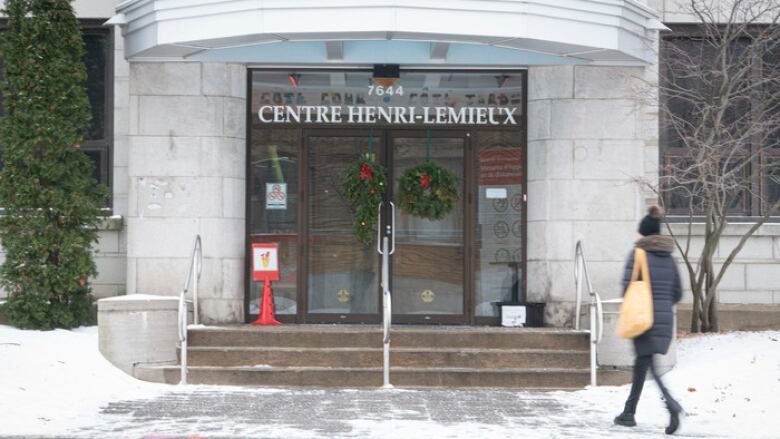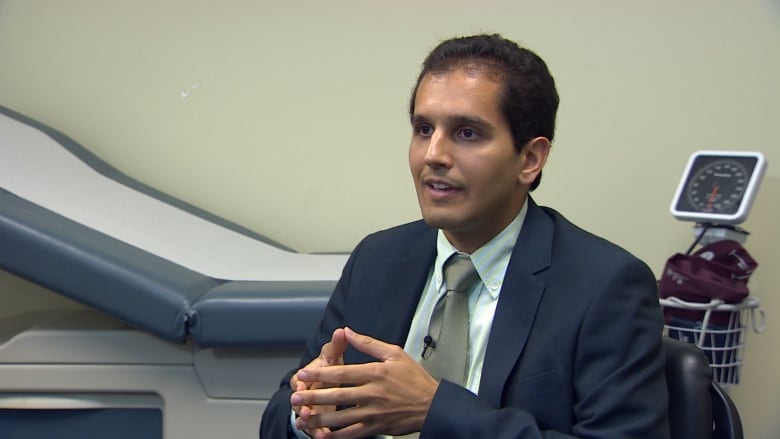Montreal public health warns of possible omicron exposure at 2 different locations
People should get tested if they were at West Island gym, LaSalle community centre during listed times

Montreal public health is calling on anybody who visited two locations, including a West Island gym, on specific days in early December to get tested because the siteswerevisited by two people linked to the omicron COVID-19 variant.
The gym is Buzzfit Kirkland, located at 3240 Jean-Yves Street:
-
Dec. 1 between 4 p.m. and 6 p.m.
-
Dec. 5 between 4 p.m. and 6 p.m.
-
Dec. 6 between 4 p.m. and 6 p.m.
The second location is Centre culturel et communautaire Henri-Lemieux, a community centre in LaSalle located at 7644 douard Street.
-
Dec. 4 between noon and 2 p.m.
"Even if you are adequately vaccinated and have no symptoms, we recommend that you get tested for COVID-19," saidthe public health agency in a news release Friday.
The news release does not estimatehow many people may have been exposed in these two cases.
Where to go for tests
Those who may have been exposed should get tested at either the Jewish General Hospital or the CLSC Parc-Extension because these are the only two centres with laboratories equipped to detect the omicron variant, the release says.
Both testing centres have walk-in hours, but public health is asking those who may have been exposed at these two locations to make an appointment through the provincial website so as to provide information related to the exposure.
People can also make an appointment by calling: 514-644-4545.
If it is not possible to visit one of these two clinics, people should mentioned they may have been exposed to the variant when getting tested.
14 omicron cases detected in Montreal
The variant of concern B.1.1.529, known as omicron was first detected in November in South Africa and Botswana.
"This variant is now present in several countries. More data on this variant is needed to rule on its transmissibility, virulence or vaccine efficacy," public health says.
"However, early data indicates that it is possibly two to 3.5 times more transmissible than the delta variant and that there is an increased risk of re-infection."
Because of these concerns, Montreal public health says it is "adopting an approach aimed at suppressing all transmission of the omicron variant in its territory."
As of Thursday, 14 cases of the omicron variant hadbeen detected in Montreal, the release says.
Of these, five could have been acquired while traveling outside of Canada, while the remainder acquired it in Canada, suggesting limited local transmission, it says.
Better to do tracenow, than later: expert
Dr. Christopher Labos, a Montreal cardiologist with a degree in epidemiology, says Montreal public health's call for testing in Kirkland isn't a cause for alarm.
The omicron cases detected are some of the first recorded community spread in the province, and that's why the time to act is now, Labos explained.
"Contact-tracing is easier the fewer number of cases you have," he said. "Once you see hospitalizations rising, it's usually too late to do prevention and much harder to do the appropriate contact-tracing."

And that tracing is what prevents and limits the impact of outbreaks, he added.
"This is actually what the system is supposed to be doing and I wish we did more of it, because if you can test people and test early, you limit the number of people they might be in contact with," Labos said.
Labos said it makes sense that public health would ask people are vaccinated and have no symptoms to get tested because "the more widely you test people, the more cases you're going to catch."
The epidemiologist says there is still a lot of uncertainty around the potential impact of the omicron variant, but that it appears to be more transmissible and could evade some of the vaccines' barriersthough the sickness it causes appears to be milder than other forms of the disease.
But vaccinated people who test positive and have no symptoms could still "theoretically" pass the virus onto someone else, for whom the consequences could be more serious.
"We don't know how this is going to play out. That's why it's so important to act prophylactically," Labos said.












_(720p).jpg)


 OFFICIAL HD MUSIC VIDEO.jpg)
.jpg)



























































































